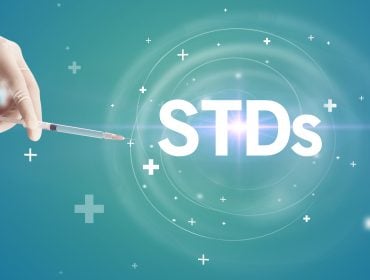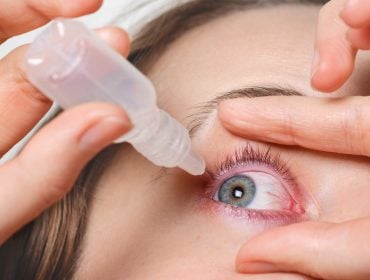Effective Ways of Managing Herpes Outbreaks
Herpes simplex virus (HSV) is an enduring condition with no available cure, affecting approximately one in six American adults. Managing herpes outbreaks is important since this is a silent inhabitant in many, living dormant until conditions provoke its emergence, manifesting visibly as a physical reminder of an internal guest.
Outbreaks can be unpredictable.
Those familiar with their symptoms may sense the telltale prodrome–subtle signs an outbreak is imminent–often experiencing a constellation of sensations that herald the unwelcome blisters.
Unveiling Herpes: Types and Symptoms
Herpes Simplex Virus (HSV), a pervasive and resilient pathogen, presents itself in two primary strains: HSV-1 and HSV-2. HSV-1 is commonly associated with oral herpes, which manifests as cold sores or fever blisters around the mouth. HSV-2, on the other hand, is the primary cause of genital herpes, leading to sores in the genital and anal areas. Recognizing which type of HSV one has contracted is crucial for managing symptoms and preventing transmission.
The clinical manifestations of herpes can range from mild to severe, dependent upon the immune competency of the individual. A herpes outbreak is often preceded by an aura known as the “prodrome,” signaling impending lesion development. These prodromal symptoms can include tingling, itching, or pain at the site of future outbreaks. As the outbreak commences, clusters of painful blisters or ulcers erupt, fundamentally compromising the mucosal integrity of the affected region.
HSV-1 vs. HSV-2: Core Differences
HSV-1 predominantly causes oral herpes, leading to cold sores around the mouth, considered a less severe manifestation than HSV-2.
HSV-2 is primarily linked to genital herpes, resulting in more significant discomfort and potential psychosocial complications due to its location.
Oral herpes can present without symptoms, making awareness and testing crucial for prevention.
Unlike HSV-1, HSV-2 tends to recur more frequently and requires a differentiated approach in treatment to manage genital outbreaks effectively.
Recognizing Herpes: Signaling an Outbreak
The herald of a herpes outbreak is typically marked by distinct sensory indicators.
- Sensory warnings: Tingling, itching, or burning sensations localized to one area may precede visible signs.
- Lesion onset: The emergence of small, painful blisters or sores on the mouth or genitals follow sensory alerts.
- Flu-like symptoms: Some individuals experience fever, body aches, and swollen lymph nodes as part of prodromal presentation.
- Progression: The blisters can eventually burst, leading to ulcer formation before finally scabbing over and healing.
Caught early, these signs enable individuals to seek timely antiviral intervention.
Proactive management of symptoms can significantly mitigate an outbreak’s duration and severity.
Action Plan: Treating Herpes Symptoms
Upon recognizing the initial signals of a herpes outbreak, immediate action is imperative to manage the symptoms and curtail the outbreak’s progression. Antiviral medications such as Acyclovir, Valacyclovir, or Famciclovir may be prescribed by a healthcare professional, these agents act by interfering with the virus’s replication process, thereby reducing the frequency and severity of outbreaks. Palliative care measures including over-the-counter analgesics, warm baths, and loose-fitting clothing can provide symptomatic relief. It is pivotal to abstain from sexual activity during an outbreak to prevent transmission and to maintain impeccable hygiene to prevent additional infection. For HSV-2 management, a long-term suppressive therapy may be recommended to decrease the likelihood of transmission to sexual partners and to reduce the rate of recurrence.
Prescription Medications: Speeding Recovery
Antiviral medications play a crucial role in expediting recovery from herpes outbreaks. When taken promptly, they work to inhibit viral replication, thus underpinning a swifter healing process. Apt initiation of these therapeutic agents can markedly abridge the duration and intensity of an episode.
Early intervention with antivirals is key to efficacy. Initiating treatment at the onset of prodromal symptoms or when lesions first appear is imperative.
These medications, including Acyclovir, Valacyclovir, and Famciclovir, each have a unique mechanism of action. However, all share the common goal of hindering viral DNA synthesis, ultimately curbing viral proliferation.
For optimal results, a healthcare provider may tailor the type and dosage of medication to your specific condition. This individualization ensures that the therapeutic strategy aligns with your body’s needs and the nuances of your herpes infection.
Continuing antiviral therapy for the prescribed duration is essential, even if symptoms improve before completion. Abrupt discontinuation could precipitate a resurgence of the virus, undermining the initial therapeutic gains and possibly resulting in more prolonged or severe outbreaks.
Moreover, maintaining strict adherence to prescribed antivirals offers prophylactic benefits beyond immediate relief. It may significantly lessen the possibility of subsequent outbreaks and reduce the potential for viral shedding that could transmit the infection to others.
Home Remedies and Lifestyle: Natural Support
Integrating natural remedies and lifestyle adjustments can complement medical treatments for herpes.
- Maintain a diet rich in lysine, an amino acid that can inhibit herpes simplex virus replication.
- Reduce arginine-rich foods such as nuts and chocolate, as arginine can promote herpes outbreaks.
- Stay hydrated to help maintain skin integrity and support overall immune function.
- Manage stress through techniques like yoga or meditation, as high stress levels can trigger outbreaks.
- Opt for loose-fitting clothing and cotton underwear to keep affected areas dry and prevent irritation.
- Apply cool compresses to sores to alleviate pain and swelling during outbreaks.
- Keep the affected area clean and dry to minimize the risk of secondary bacterial infections.
Prioritize sufficient rest and sleep to bolster your immune system’s ability to combat the virus.
Awareness and proactive management form the cornerstone of living well with herpes, reducing both outbreak frequency and severity.
Outbreak Prevention: Strategies That Work
Regular sexual health screenings, including comprehensive STD testing at STDCheck, are a prudent approach to early herpes detection and managing herpes outbreaks. Such preemptive steps can mitigate the risk of virus transmission to partners and stymie the development of complications. Coupled with a robust hygiene regimen, these precautions are instrumental in controlling herpes outbreaks effectively.
Avoiding triggers that precipitate herpes outbreaks, specifically tailored to your individual health profile, is essential for outbreak prevention. Lifestyle practices encompassing stress management, dietary adjustments, and safe sexual behaviors coalesce to form an effective defensive strategy against the recurrence of herpes symptoms.
Trigger Management: Lifestyle Adjustments
Excessive ultraviolet (UV) exposure can provoke herpes outbreaks, warranting meticulous sun protection measures.
By 2017, research had underscored stress’s exacerbation of herpes symptoms, prompting recommendations for regular relaxation and stress reduction techniques to manage flare-ups effectively.
However, nutritional imbalances also play a significant role, requiring a diet rich in lysine and low in arginine to potentially reduce outbreak occurrences.
Moreover, rigorous physical activity may trigger herpes symptoms; thus, it’s advisable to undertake moderate, consistent exercise regimens to maintain physical health without overstimulating the virus.
Ultimately, identifying and conscientiously avoiding personal triggers can significantly reduce the frequency of herpes outbreaks and enhance quality of life.
Sexual Health: Reducing Transmission Risk
Understanding and employing proactive strategies are essential for mitigating the risk of sexually transmitted infections.
- Condom Use: Consistently use latex or polyurethane condoms to drastically reduce transmission risk.
- Mutual Monogamy: Engage in sexual activities exclusively with one partner who has tested negative for STIs.
- Dental Dams: Utilize this barrier method during oral sex to protect against skin-to-skin STI transmission.
- Communication: Openly discuss STI status and testing with potential sexual partners before intimacy.
- Lubrication: Apply water-based or silicone-based lubricants to minimize condom breakage and microtears in the skin.
Applying these measures is integral to maintaining sexual health and safety.
Early detection through regular screenings with services like STDCheck can prevent the spread of infections.
Herpes Testing: Essential for Sexual Health
Herpes simplex virus (HSV) affects millions globally, making reliable testing a cornerstone of sexual health management.
For those who are sexually active, identifying and understanding one’s HSV status through serologic herpes testing is vital for informed sexual health practices and partnership dynamics.
Incorporating routine “HSV-1” and “HSV-2” screening can lead to early detection, critical in the effort to combat STI transmission.
STDCheck.com: Reliable Testing from Home
Efficient and accessible, STDCheck.com empowers individuals to take control of their sexual health discreetly.
Launched with the mission to simplify STI testing, STDCheck.com offers a suite of FDA-approved tests that span a comprehensive range of sexually transmitted infections, including the herpes simplex virus.
With more than 4,500 testing locations nationwide, individuals can locate a nearby facility for convenience and privacy. Our platform champions privacy, ensuring user information is protected through encrypted data transmission and follows stringent HIPAA guidelines.
By using STDCheck.com, individuals can secure peace of mind and contribute to public health through responsible sexual behavior and regular screening.
Preventive Measures: Why Testing is Crucial
Herpes simplex virus (HSV) testing is pivotal for several reasons. Not only does it facilitate early intervention and management of the disease, but also it assists in the mitigation of further transmission to intimate partners. Additionally, knowledge about one’s HSV status encourages informed decision-making in sexual activities and may promote discussions that result in safer sexual practices.
Managing herpes outbreaks through accurate information.
Understanding the complexities of HSV necessitates – for personal health and public well-being – routine and precise diagnostic measures.
Accessibility to reliable, confidential screening through services like STDCheck can considerably reduce the incidence of herpes transmission, exemplified by their commitment to provide up-to-date testing solutions. With tools like our user-friendly website and expansive testing options, STDCheck is at the forefront of sexual health management. This is evident in their utilization of FDA-approved testing protocols, which ensure both accuracy and dependability for users seeking clarity on their sexual health status.
Medically Reviewed by Kaci Durbin, MD, MBA, FACOG on March 18, 2024
Secure and Confidential
STD testing services
The fastest results possbile - available in 1 to 2 days

Tagged
Categorized As
Author: STD Check Editorial Team
At STDCheck.com, we go to great lengths to ensure quality content. We’re using our own collection of data. It is not bought or made up for “click-bait” purposes. We don’t entice traffic with cheesy graphics or raunchy headlines. Our information is to promote STD testing, educate people, let go of social stigmas, and bring awareness. We also provide a completely confidential atmosphere through private testing. When we produce an article, it is fact-based. We check it with medical advisors that approve it. Our staff consists of doctors and other medical professionals who peer review the content we make available on STDCheck.com. From all over the world, we have sourced the best and the brightest content developers, including medical professionals, marketing engineers, data scientists, content specialists, and media relations.




